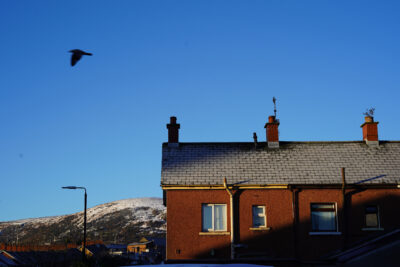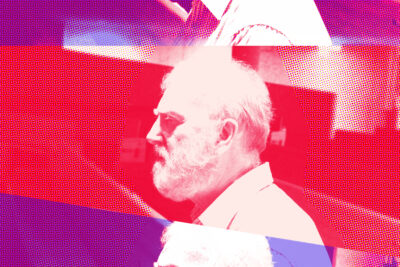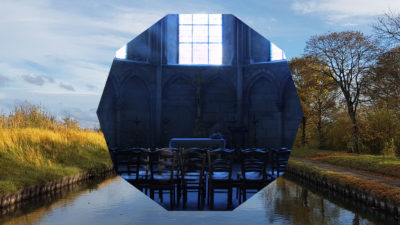On the morning of Tuesday 11th April 2023, Community of the Passion member Lya Vollering set off from Canterbury to begin walking the 1,800km pilgrimage trail known as the Via Francigena, which has Rome as its destination.
Walking an ancient path to the future, Lya does so as an act of ecological witness in the midst of our climate crisis, to call attention to the urgent need to heal and care for the earth, our common home.
Here we share her fourth week of reflections on the journey.
Tuesday 2nd May: Nourished by friends
On Monday we walked into Reims following the canal, then took a left turn towards the centre. We came upon a long street with shops, cafes and lots of concrete, but no trees in sight. Only when we turned right did we see a little green park and the majestic cathedral appeared. It is famous for its laughing angel.
It was there that I met up with my friends from The Netherlands. It was such a joy to see them and to be able to spend two days with them. The following day we explored Reims together, beginning with the cathedral itself. I love the stained glass designed by Marc Chagall. It is the beautiful blue, the simple figures, the connection between Old and New Testament. I can’t help to thinking there is another quality too. It’s a kind of feeling that it has been ‘prayed’ into being.
Afterwards, as we walked out of the centre, we came across a large park. I could feel myself relax as soon as I entered this green living space.
In the afternoon we visited the basilica of St. Remi. I was moved by a wooden sculpture of Christ from the 16th century. He sat with his hands and feet tied, his knees bruised and damaged, his face sad. It was such a human figure and a contrast to the golden crucifixes that were present too.
Today, as my journey continues, I feel very nourished by my friends in so many ways. I begin walking with a heart full of gratitude and a tummy full of good food!
Wednesday 3rd May: The Tallest Building
On Wednesday, before my friends from The Netherlands returned home, we went to mass together in the basilica of St Rémi. It was held in a side chapel and attended by a few elderly ladies and an elderly gentleman. Afterwards, we walked to the canal and continued a little further till it was time to say our goodbyes. I had such a good time with them and stepping into the unknown on my own again was rather difficult.
I walked most of the 20 km along the canal. At the outskirts of Reims there were large and very tall factories which appeared to be making concrete and cement. From a distance, I had confused these huge factories with modern cathedrals. This reminded me of a documentary I’d seen in which people from Papua New Guinea were invited to come to London. There comments on the city were very interesting. I remember particularly a question that was asked by one of the visitors as they overlooked the city from a high building. The visitor wished to know which was the tallest building. Their English host pointed out the tallest, explaining that they were in the financial heart of the city. The visitors were very surprised. They said that in their culture no building was allowed to be higher than their most sacred building. It shows that what we in the West view as ‘sacred’: money and production.
After leaving the canal, I entered some vineyards and then a small village. There, I suddenly heard someone calling my name. It was Astrid. She and Albrecht had seen me passing by the gite where they had been staying. It was good to see them again. We shared the syrup waffles and water before I continued toward the woodland for a night amongst the trees.
Thursday 4th May: Cemeteries & Vending Machines
Cemeteries have been ‘life-saviours’ today. I struggled with the 25 degrees of heat and wonder how I will cope in what is likely to be a much hotter Italy. Nevertheless, one day at a time.
I woke up in a beautiful woodland where I had pitched my tent. It was a lovely, mild night. I had positioned my tent near a holly bush, on a patch that was flat and spacious enough for the small tent. I love being close to the trees and the earth. However, I was also aware of logging that had taken place and the tree trunks lying nearby felt like dead bodies. The ground had been disturbed by deep tractor trails. I heard a rich and varied bird song but also the constant noise of a motorway in the near distance. It was lovely though to walk in the woodland, to feel the soft earth under my feet and the presence of the trees.
After the woodlands, more vineyards. Like yesterday, people were busy with strange looking machines, reminding me of lunar rover vehicles. They were busy ploughing and spraying. I have quite romantic ideas about vineyards. I imagine people with big sun hats carefully attending the vines by hand. Of course, grapes are now produced on an industrial scale and that doesn’t look romantic at all. Again, there were few birds in the fields, but as soon as I came upon bushes or trees the bird population increased. This week large stretches of my walk are along canals. I see few water birds, only some mallards. The only ducklings I have seen were in the pond of the Benedictine monastery in Thierry.
By the time I arrived in Conde-sur-Marne I felt hot and bothered and had hardly any water left as well as no food. Unfortunately, I arrived at 3pm. Shops in the small towns close between 2pm and 4 pm. Where might I find at water and some shade? There are not many trees in this village. I searched till I saw an elderly man on a squat who was driving round and round, grinning at me each time he passed. How strange, I thought.
At the edge of the village, I found a vending machine with fresh bread and strawberries. These machines are quite common in France. They also have baguette and pizza vending machines which are very popular. Next to this was the cemetery. I have learned that often there is a tap in such places. Finding one, I drank fresh cool water and sat on the bench under the only tree present. Even cemeteries are quite built up here. How different it would look if each grave was planted with a tree.
As I sat there, I attempted to contact a family 8km from here that hosts pilgrims. No answer. I knew there was a bed and breakfast in the village and decided that it was time to stop and just have a B&B for a change. Upon arrival, I was offered a drink, a beer even, but I thought some water would be wiser in this heat. After the luxury of a shower, I walked to the nearby bakery. Leaving the shop, I bumped into my German friends. We laughed about how the universe keeps throwing us together!
We shared a supper of eggs and salad from the vending machine along with the baguette and pastries from the bakery. Happy times!
Sunday 7th May: Prayer Space & Roman Road
The entire route from Conde-Sue-Marne to Châlons-en-Champagne was along the canal, a lengthy, straight, path. The wildflowers kept me entertained. I discovered a new species: tall, yellow, and sun-like in appearance. The dandelions, now in seed, are also attractive with their fluffy heads. Grasses are in seed too and give another dimension to the composition of the verge.
Then the rain came. I’m not sure why the subject came up, but Astrid and I started talking about abuse in the church, abuse of women and abuse of the earth. An easier path emerged as we conversed and this facilitated a deeper exploration of our subject matter as we didn’t have to worry about where to place our feet.
We found shelter at a pleasant youth hostel (such places keep us young!) Astrid went to visit the cathedral and was very taken by the prayer space for victims of abuse. Next day, I had to wait until after 10am, but finally got to see this cathedral with very bright coloured stained-glass windows. However, it was the prayer space for survivors of abuse that also touched me deeply. Its focus was a simple display board with a photo of a crying angel or child and a beautiful prayer written by an abuse survivor. There was a contact number for people affected by abuse. I think that this space should be in every cathedral at least, if not in every church.
It was uncanny how the very day we talked about this subject in depth we came across this prayer space.
Astrid, Albrecht and I had discussed the two options we now faced: following the indicated route or travelling the alternative one. The latter involves the original route along an old Roman road, described by Segeric. It is shorter but there are less services and such a straight road could be a little boring. We decided to go for the Roman option, because it follows the old path, is shorter and offers the possibility of staying with guest families.
Leaving Chalons-en-Champagne, we followed the course of the River Mare. Walking alongside a river is very different to walking alongside a canal. The river has a very different presence: calm and majestic, I would say. We walked through beautiful wetland and then crossed the bridge to find the Roman road. There it was: running as straight as a ruler through the landscape of fields with rapeseed, wheat and occasionally a smaller field covered in plastic. As we had a closer look to see what was growing there, a car stopped, and the driver told us it was a field of white asparagus. There were many wind turbines nearby. The whole landscape appeared so man-made. Sadly, some of the verges had already been mown. I missed the presence of the wild wonders I had become used to.
It was a warm day and there was little shade on the route we had chosen. Twenty kilometres felt enough for today. Our next host, an elderly lady, offered us homemade apple juice and beer, upon our arrival. I was shown to a room with posters of Big Ben and wallpaper featuring traditional London buses, British flags and other famous images of the capital.
Monday 8th May: Climate Change & Rumba
Our hosts in Fontaine sur Coole have been very generous with their time, the sharing of their house and with the lovely food they’ve prepared for us.
They are both in their eighties but very fit and engaging. They had a farm, which has now been taken over by their son. They talked about the changes in agriculture and how the land is now worked with large machinery. These machines are bought with credit. Then there is the need to buy more land, to produce more to pay the debts. More land means the need of more machines and so the vicious circle continues. Our host talked about the much lower levels of water these days in the River Coole. There is less rain and snow. Crops, like potatoes, that didn’t need irrigation in the past need it now. This means even less water in the river and less ground water and so another vicious circle takes place. Our host added that, due to climate change, the wheat is now harvested as early as June whereas in the past it was always mid-August.
The guidebook had advised us to take enough food if the Roman route was followed, because of the lack of services available. So, we carried an extra weight in food. Our hosts also gave us packed lunches to take with us: eggs, apples and cake. We politely declined the offer of bread as we had enough of this. With tummies and backpacks full, we continued our way.
There has been a weather warning for our region. Thunderstorms ahead! However, things looked quite calm and most of the rain had passed when we set off for the next stretch of the Roman road.
The first section wasn’t too bad. Grass had started to overhang the road making the edges softer and more pleasing to the eye. There were little strips of woodland with beautiful orchids, which made for a pleasant, if short-lived, break from the straightness of the road.
One piece of land (about an acre in size) was fenced off and signposted as a field for biodiversity. It was somewhat amusing to see this tiny parcel of land amongst hectares and hectares of mono agriculture.
As we rested at the side of the road, Astrid and Albrecht decided to dance the Rumba. It provided light relief and very welcome entertainment!
On the final stretch of the road we came across two large pig farms. They had barns with small, frosted glass windows. I heard the pigs screaming. And then came the stench. It brought me back to the farm of my childhood. We had a small barn with pigs which were bought young and then fattened for the slaughter. A horrible place. The pigs never saw the daylight. There was always the screaming and the horrible stench. Here, it was the same, but on a larger scale. The way we (ab)use animals and land are all connected.
Change is possible though. Our host told us that this valley was a sea in ancient times. It is low-lying land and very chalky. It was always a poor area, with little sign of economic growth. In Napoleonic times, it was planted with pine trees. Now there are hardly any trees. The ones I saw, I greeted. If this landscape has changed at times over the centuries, can it not change again? Can it change so that there is more than just an acre for biodiversity?
We arrived at what is called ‘The Roman Refuge’. It is organised by the mayor and is a public space that was the former school in a village that now accommodates only 95 inhabitants. There are three field beds, a table and a bench. There is also a toilet with a wash basin providing cold water. The mayor brought us ready meals, cheese, wine and bread. He told us that the first pilgrim came arrived here in 2011. He was a guy with a large backpack asking for a place to stay. The mayor had to improvise back then and realised that he would like to organise something for future pilgrims.
Together, the French mayor, my German companions and I, raised a glass to world peace and unity. Monday 8th of May is Liberation Day in France, commemorating the end of WWII.
You can follow Lya’s weekly updates here.
Related Stories

Inner State: Passionist Life in North Belfast
North Belfast is a community that has seen immense trauma over the past century – defined by political forces beyond its control.
May 30 2024

To Illumine the Mind: the Catholic diaspora in Paris
In Paris, Martin Coffey leads a church overflowing with working class immigrants. The picture of religion in France, he tells us, is not what you think.
Mar 01 2024

Positive Faith present a World Aids Day service, ‘The Reason for Hope’
Reflections, music and scripture as well as opportunities for sharing on this World Aids Day online service.
Dec 01 2023

